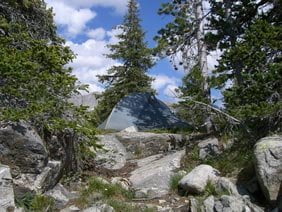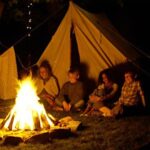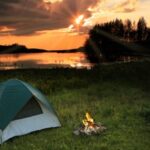Select The Right Campsite

The area that sees the most damage is typically the campsite. If possible, select a designated and popular campsite, because that area is more likely to be intended for campers. However, if you prefer going into the real wilderness, it’s important to choose a ‘hard’ campsite. This means you should select a spot that has solid terrain where you will make the smallest impact.
Also, avoid areas within 200 feet of a water source, because the soil is softer and takes longer to repair itself. Also, meadows and dense forests are usually sensitive areas that provide resources to animals, so don’t set up camp there. Finally, make sure your campsite is fairly hidden by trees or flora, so you don’t disturb the natural views for other campers.
Minimize Camping Trash By Planning Ahead
To prevent loose wrappers and trash being discarded on the side of trails or accidentally blown away, make some effort ahead of time. If possible, remove the plastic from items, before you take them and use fewer disposable items to hold food. For example, if you’re taking sandwiches, don’t wrap them in plastic bags. Instead, pack them all in one Tupperware container.
Always Bring Back What You Take
There should never be any items left at campsites, even if they are biodegradable, like a banana peel. Avoid hammering nails into trees, because they do damage to the trunks and you could easily forget to remove them. Similarly, don’t discard leftover food on the ground. Take along a trash bin, so you can discard everything later at an appropriate location.
Be Conscious of Where You Make Your Latrine
In order to minimize the impact your bodily waste has on the environment, there are a few things to remember. First, set up a designated latrine for bigger groups by digging a hole about 7 inches deep. Make sure the latrine is not near any waterways, so there’s no contamination. Also, remember to thoroughly bury your latrine with soil before leaving the campsite.
Try Not To Build A Campfire
The most environmentally friendly thing to do is to skip the campfire all together, because it requires kindling that provides nutrition to the ground when it rots. However, if you need to cook something, you should bring a portable propane stove. If a fire is absolutely necessary, it should be small and fueled solely by sticks and twigs from the immediate area. And, as with the rest of the campsite, make sure you’ve left everything just like it was when you arrived.
Need to purchase camping gear? Browse our huge inventory of camping supplies here.



